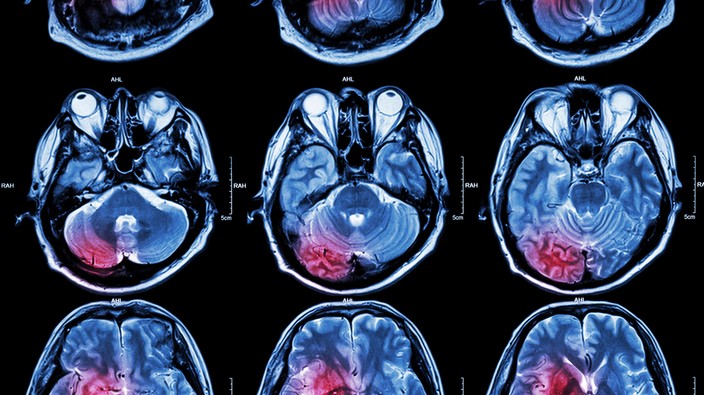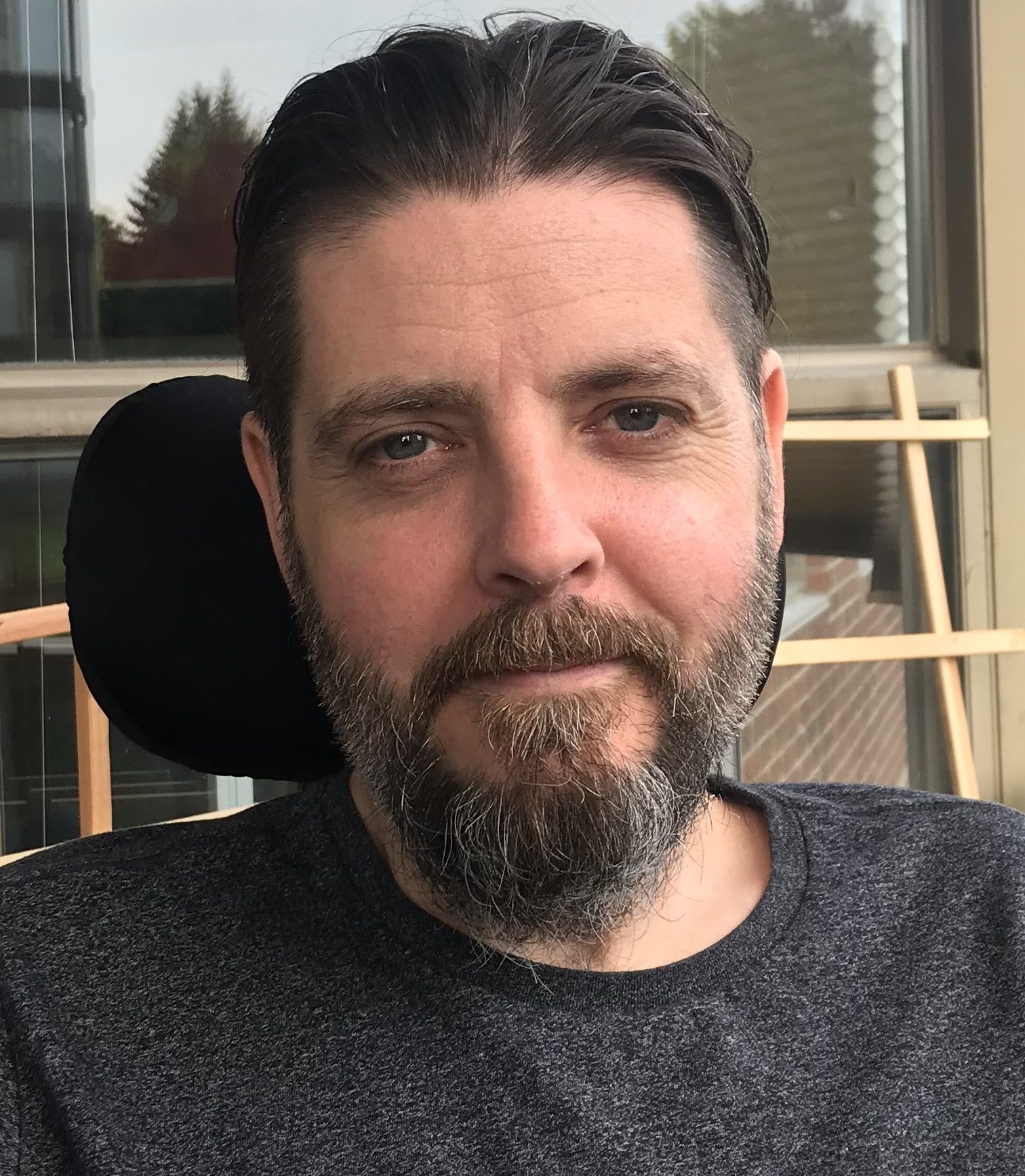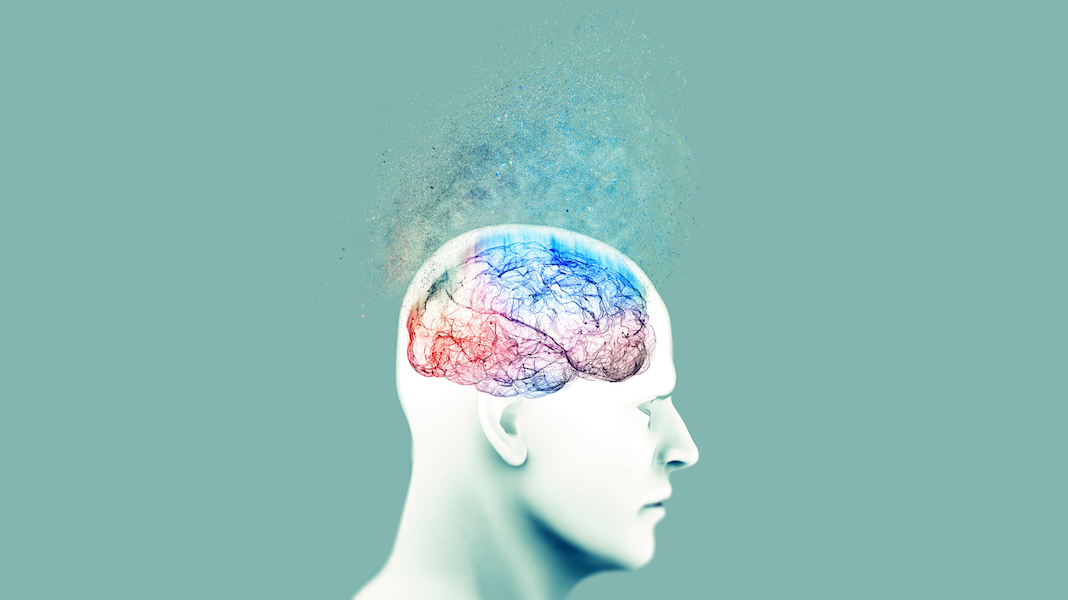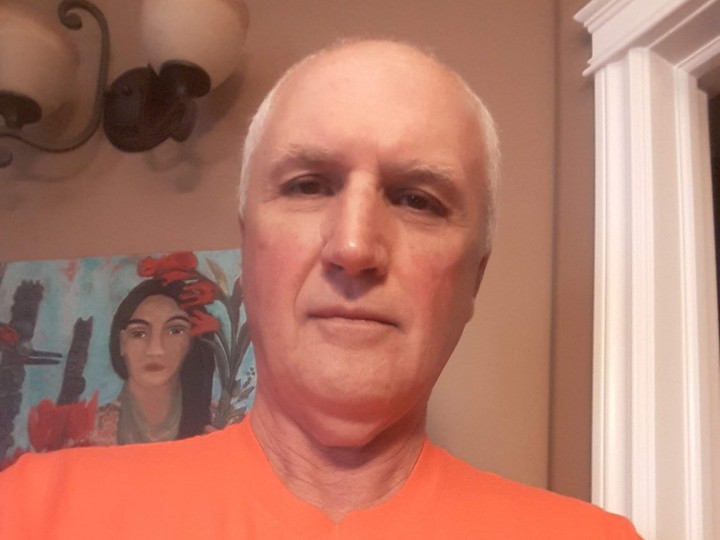how long did it take to be able to walk again?
i saw a physical therapist, and by the end of the third day, i was actually getting around not too badly. first, i was just in my room and then i was able to go down the hall. soon after i was climbing stairs with the therapist.
i wore a belt, almost like those weightlifter belts, but it had a handle on the back. so when you’re walking, the therapist holds on to the handle to steer you and keep you upright. by the fifth day, i was released from the hospital because i could walk without the walker. but i still had to be really careful because my balance was still affected.
soon i was walking every day, almost a kilometre — i took a walking stick just to make sure i could maintain balance. within two weeks, i was pretty much back to normal.
george myette emphasizes knowing the three v’s of identifying a cerebellar stroke: vision, vomiting, vertigo. supplied
were there any other side effects from the stroke?
i really didn’t have any residual effects, except for numbness in my face. that was the one thing that took a while — it probably took six months for it to go away.
the interesting thing with a cerebellar stroke is it’s not like a ‘main brain stroke’ where if you have a stroke on the left side, it affects your right side and vice versa. with a cerebellar stroke, it affects the side where the stroke occurs. so since the clot was on my left side, it was my left side [that felt] numbness. as it improved, it was like when you go to the dentist and they freeze your mouth. as the freezing is fading, you start to feel more tingling — that’s kind of what it felt like.
 9 minute read
9 minute read










